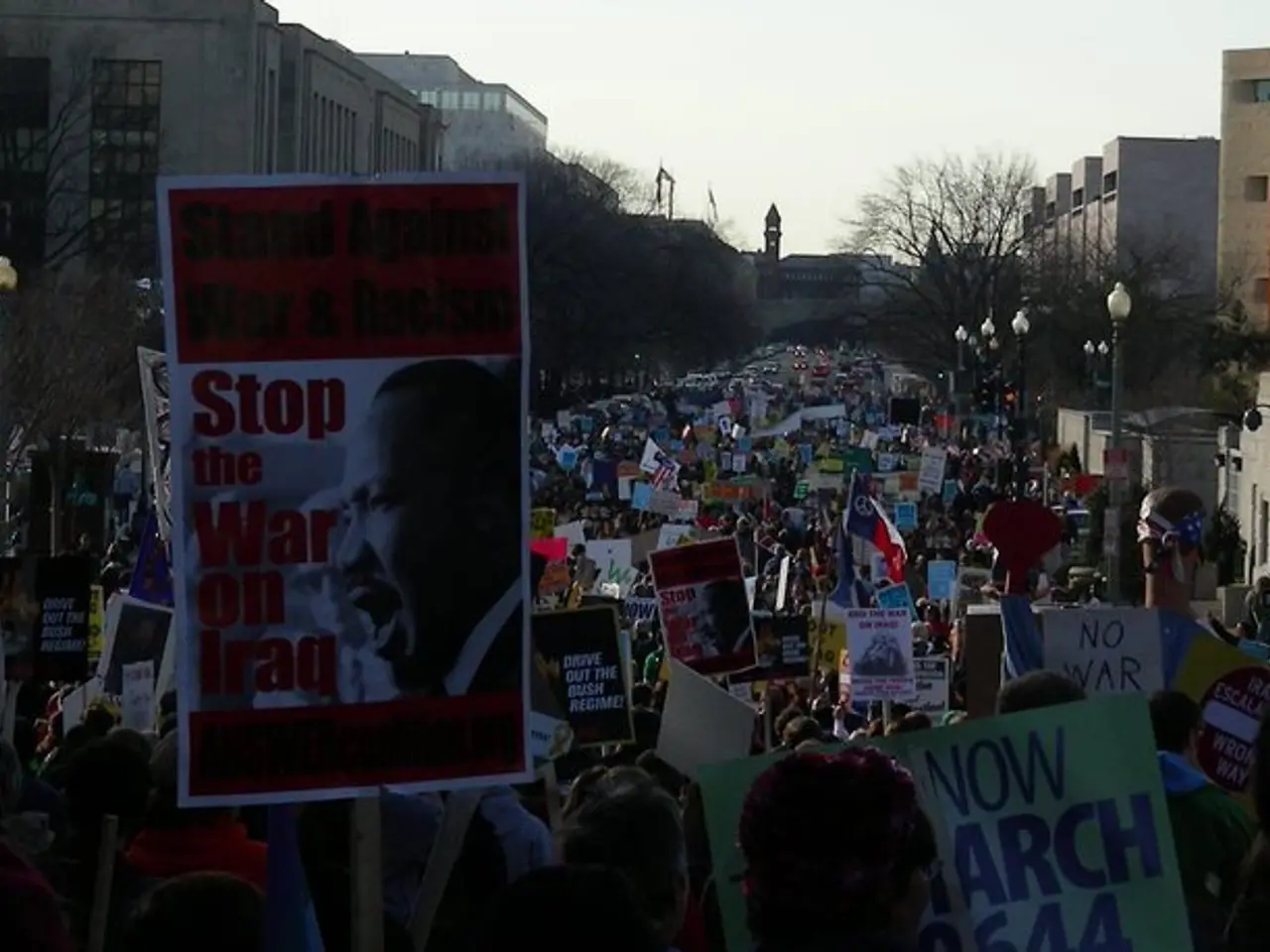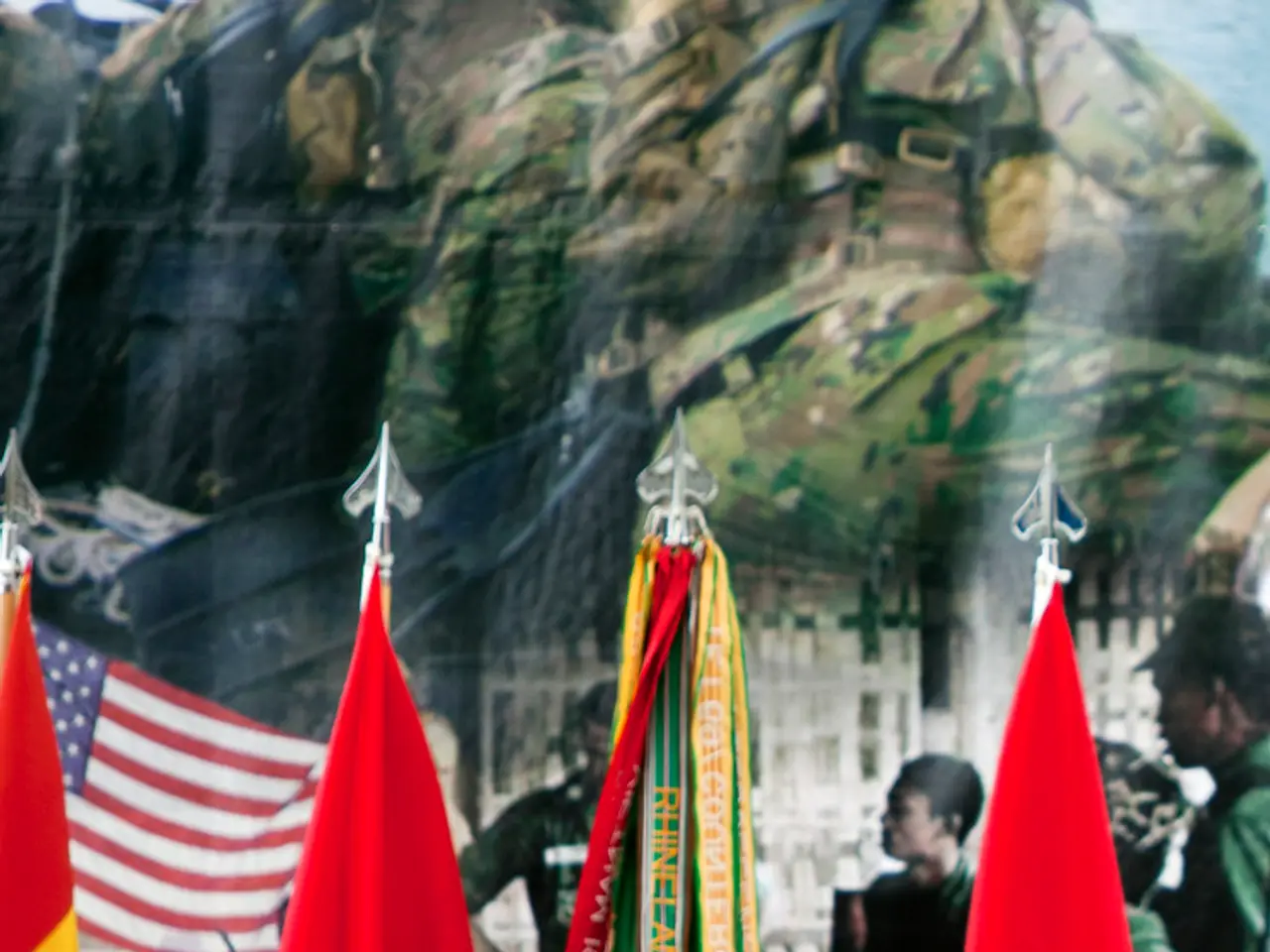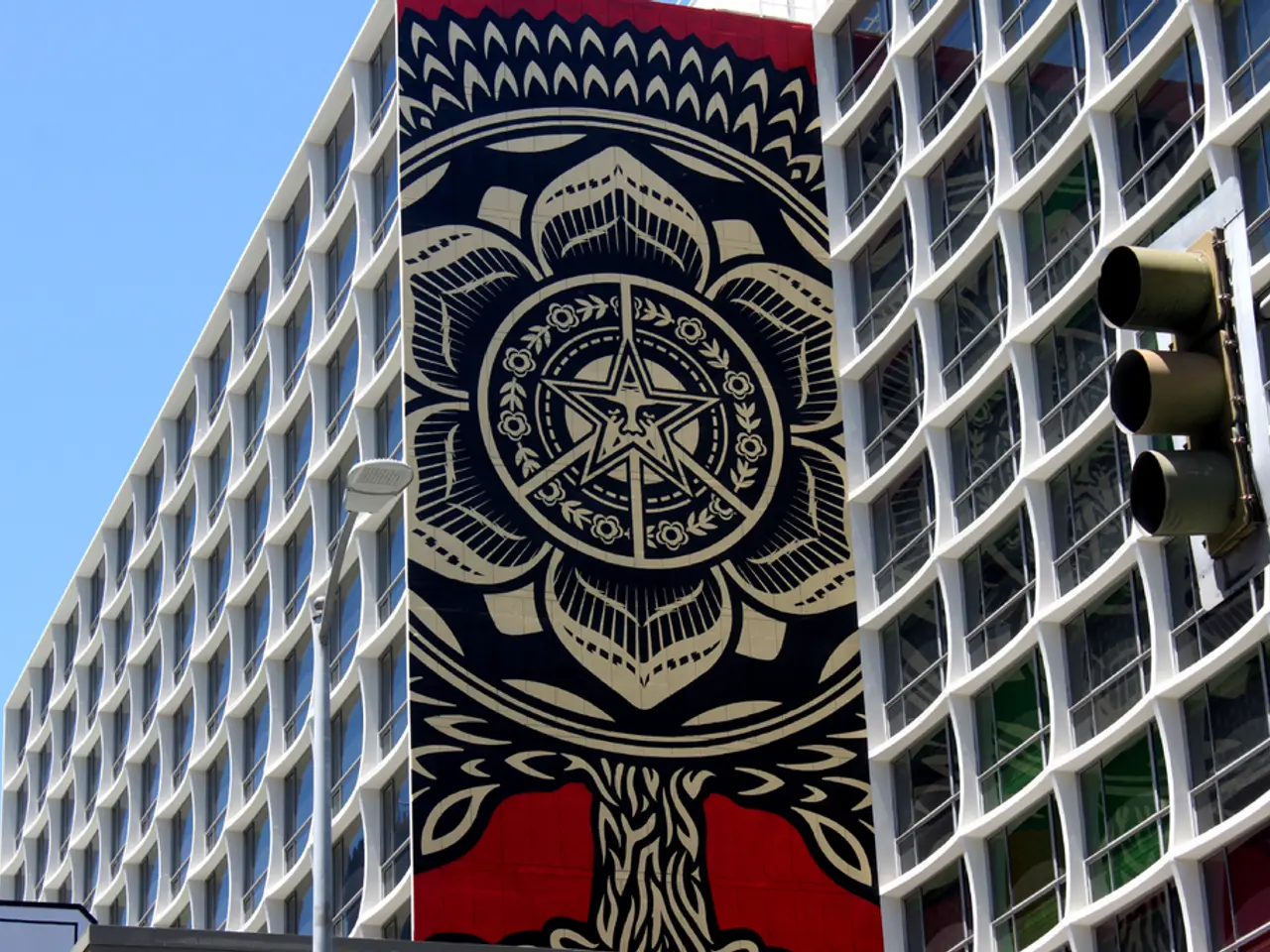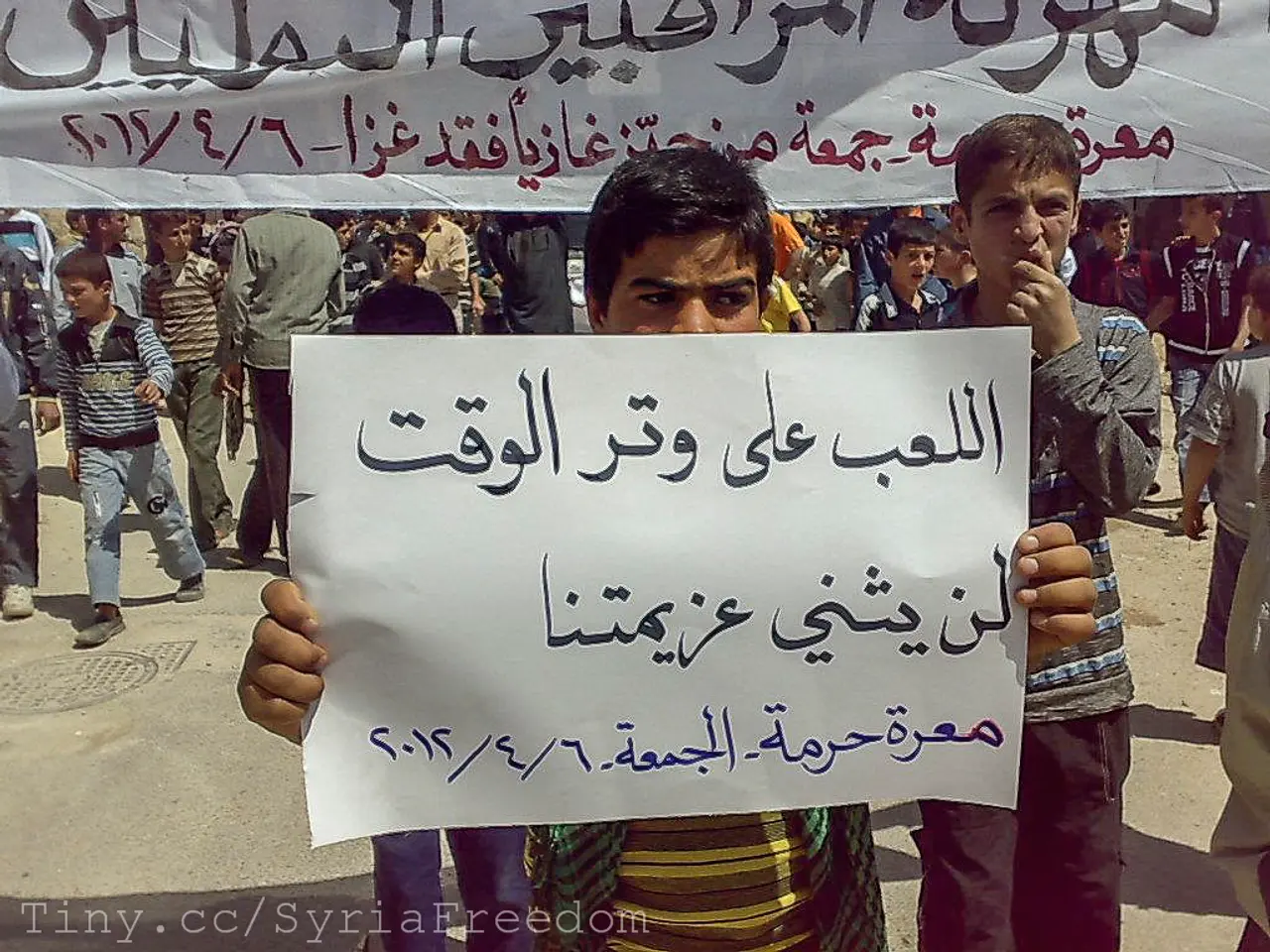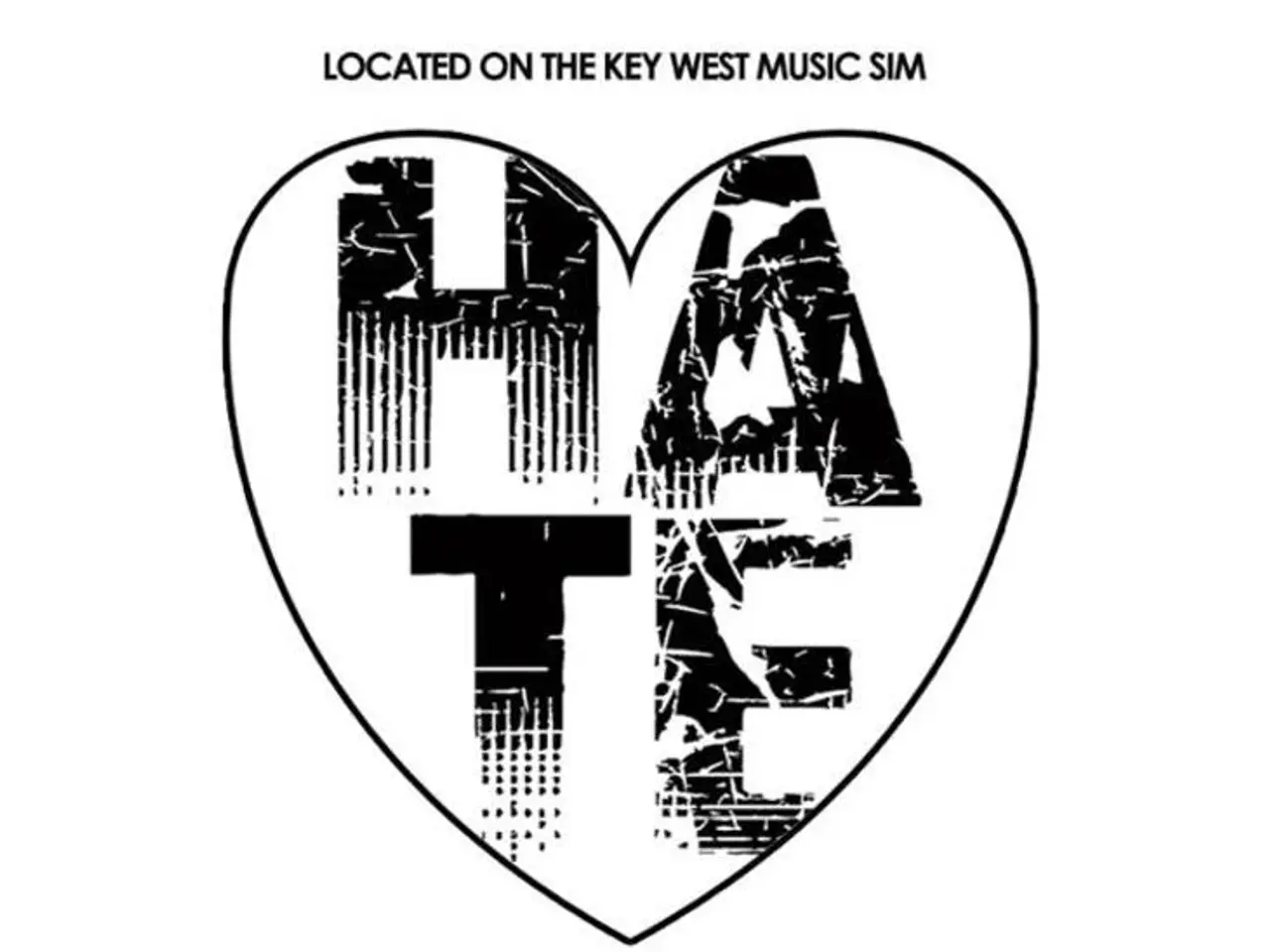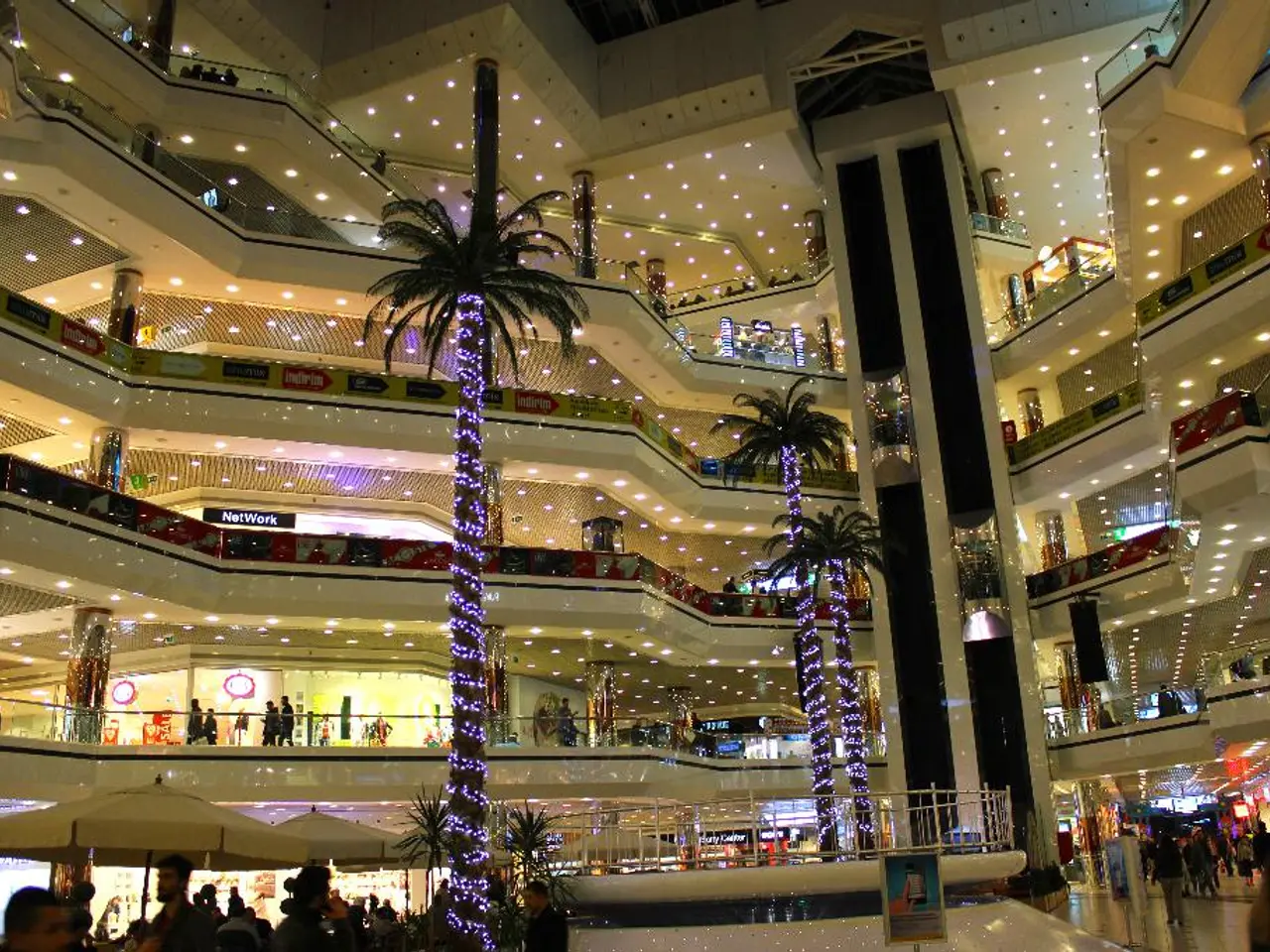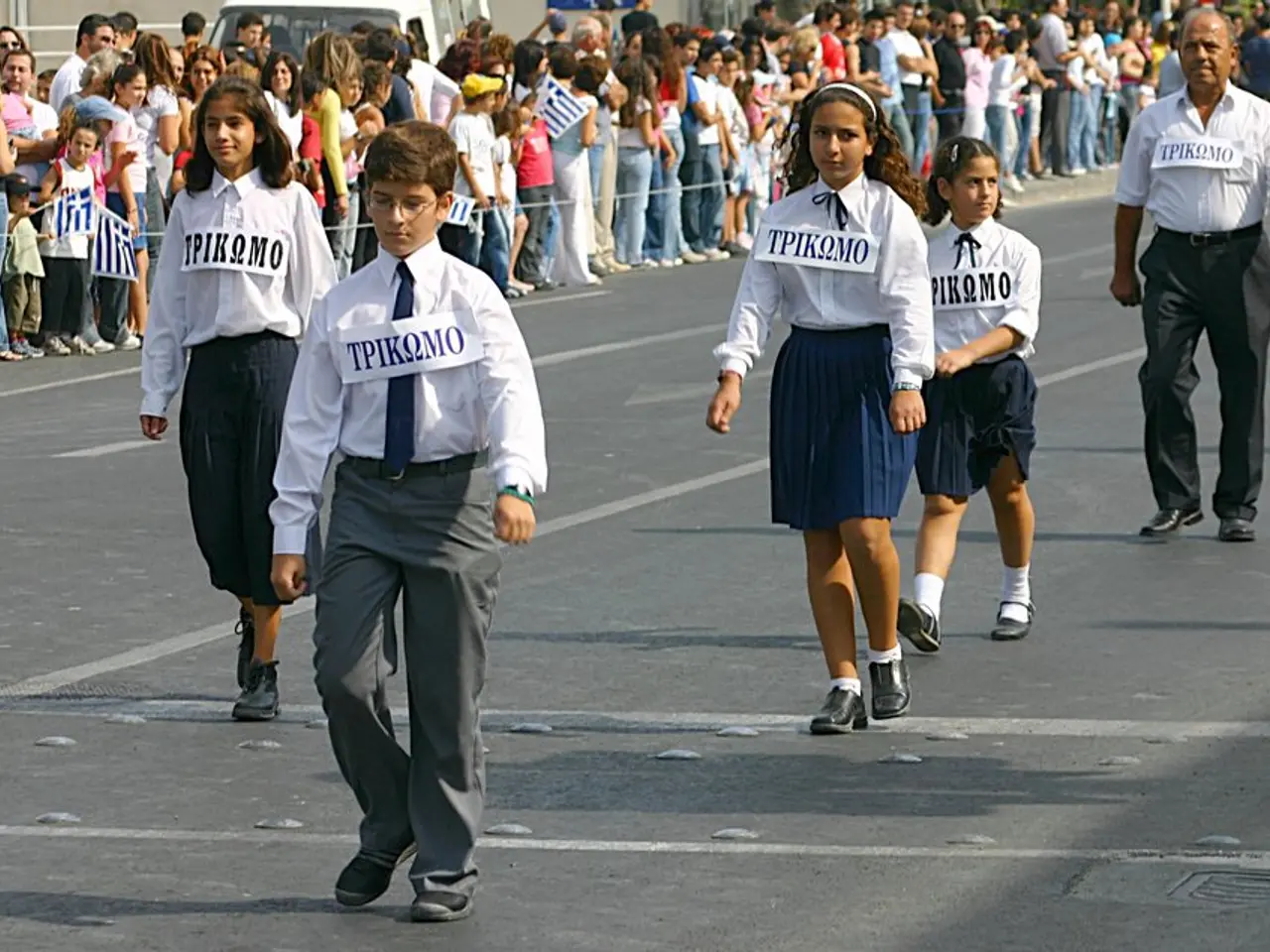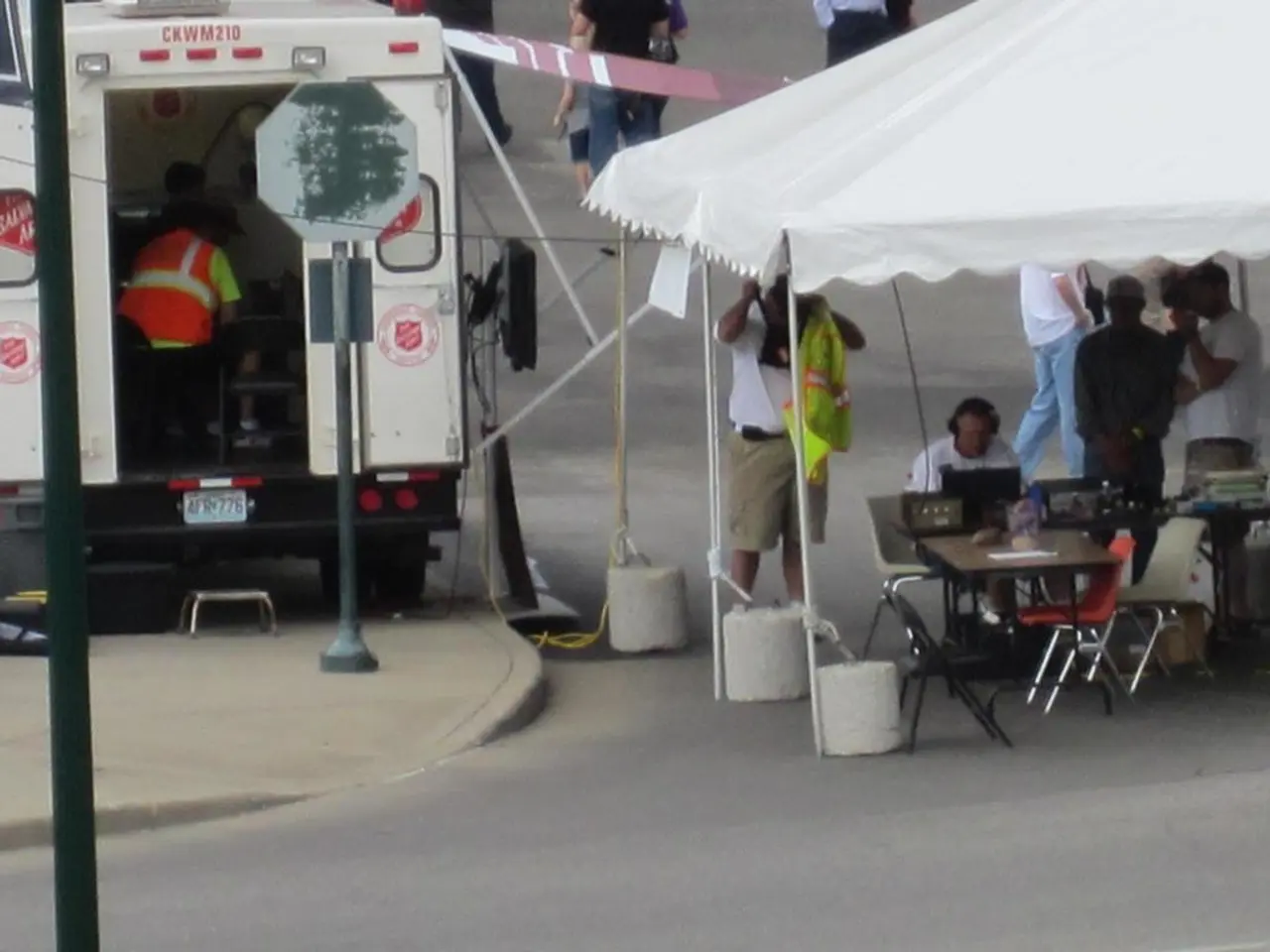"A significant demonstration in Australia regarding the Gaza crisis is viewed as a symbol of increasing global concern and unrest"
In a significant move, Australia has announced its intention to recognise the State of Palestine at the 80th Session of the United Nations General Assembly in September 2025. This decision, aimed at contributing to international momentum towards a two-state solution, a ceasefire in Gaza, and the release of hostages, continues Australia's long-standing support for a two-state outcome based on UN Resolution 181.
The announcement follows a pro-Palestinian protest on Sydney Harbour Bridge, attended by at least 90,000 people according to police estimates, with organisers claiming a turnout of 300,000. The protest, inspired by pro-Palestinian statements made by artists at Glastonbury and the victory of Democratic New York mayoral candidate Zohran Mamdani, received support from church groups, unions, and members of parliament, representing a broader section of society than previously engaged in such protests.
The protest was met with opposing views in Australian media, with some portraying it as chaotic and others as a display of public compassion. The West Australian's front-page headline read: "Bloody chaos: Baby dolls smeared in fake blood and Aussie flag burned as wild protests become our norm," while the Sydney Morning Herald ran: "Sydney says 'enough'."
The Palestinian Action Group, the protest's organiser, chose Sydney Harbour Bridge due to a shift in community attitudes towards the conflict. Josh Lees, from the Palestinian Action Group, believes the protest helped inspire people around the world to see the shifting tide in attitudes towards the conflict. Lees also expressed that the protest will help build momentum for a nationwide event on August 24.
The Australian government is under pressure to join other US allies, including the United Kingdom, France, and Canada, in pledging formal recognition of a Palestinian state at the United Nations General Assembly. In response, the government has committed an extra 20 million Australian dollars ($13 million) in aid to Gaza, taking the total to 130 million Australian dollars ($84 million) since October 2023.
The Australian government has also sanctioned two far-right Israeli ministers, Itamar Ben-Gvir and Bezalel Smotrich, for inciting violence against Palestinians. Foreign Minister Penny Wong cited the distress of Australians over the situation in Gaza as the reason for the scale of the protest's turnout. Co-CEO of the Executive Council of Australian Jewry, Peter Wertheim, noted in a letter that none of the protesters called for the release of Israeli hostages.
The decision to recognise Palestine comes amidst concerns about recent Israeli government policies undermining the two-state solution. Prime Minister Anthony Albanese emphasised that this move aims to maintain Israel's security while advancing peace and building governance and security arrangements for Palestine. The Australian government has not supplied weapons or ammunition to Israel during the latest Gaza war or for at least the past five years.
However, the move has not been without controversy. Foreign Minister Gideon Sa'ar from Israel urged Australians to "wake up!" regarding the pro-Palestinian protest. The Australian Iranian Community Alliance questioned the intentions of protest participants, pointing to imagery at the march. Kenneth Roth, former Human Rights Watch executive director and visiting professor at Princeton University's School of Public and International Affairs, stated that only US President Donald Trump has leverage over Israeli President Benjamin Netanyahu to end the conflict.
Australian businesses are part of a supply chain that provides parts for F-35s, the type of fighter jet that Israel uses to bomb Gaza. This raises questions about the impact of Australia's recognition of Palestine on its relations with Israel.
References: [1] Australian Associated Press. (2023, May 2). Australia to recognise Palestine at UN General Assembly. The Sydney Morning Herald. Retrieved from https://www.smh.com.au/world/australia-to-recognise-palestine-at-un-general-assembly-20230502-p5c6lq.html
[2] Australian Associated Press. (2023, May 2). Australia to recognise Palestine at UN General Assembly. The West Australian. Retrieved from https://thewest.com.au/news/australia/australia-to-recognise-palestine-at-un-general-assembly-ng-b881629889z
- The pro-Palestinian protest on Sydney Harbour Bridge, influenced by global pro-Palestinian statements from artists and political figures, has highlighted the intersection of politics and general news, as well as the impact of war-and-conflicts on public sentiment.
- The Australian government's decision to recognize the State of Palestine at the United Nations General Assembly follows a trend in politics, where international momentum towards a two-state solution often involves engaging with general news and addressing war-and-conflicts.
